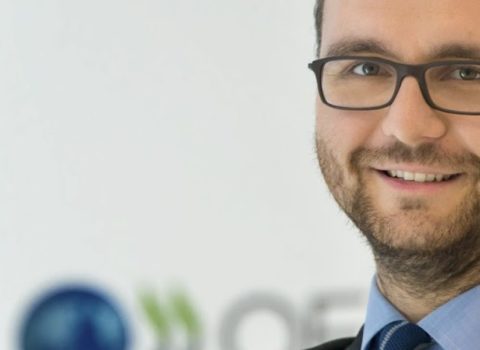
Poverty, financial worries and parental investments in early childhood
Parents living in or at risk of poverty face daily financial struggles, juggling expenses and trying constantly to make ends meet. This can shift attention away from other important but less urgent daily tasks such as engaging in educational activities with their children, with potential long lasting impacts on their human capital development. The article discusses recent scientific evidence on this topic and how public policies could better support vulnerable parents in improving the development of their children during a key period of childhood.
After being awarded the Nobel Prize in Economics for his contributions to econometrics and program evaluation, Prof. James Heckman dedicated a significant portion of his research agenda to the economics of human capital and in particular to early childhood development, i.e. the period from birth through age five. The main message of this research agenda, referred to as the “Heckman Equation”, is that investing in the early childhood development of disadvantaged children can have the highest returns in terms of education, economic, health, and social outcomes over the entire life-cycle. The estimated returns on investment for prominent US programs range from 7% to 13% per annum.
Despite the promises shown by such programs, there are great challenges in scaling them up without major losses in implementation quality and effectiveness. While being cost-effective in the long run, they are usually intensive and costly. To increase their effectiveness, engaging parents seems to be key but often take-up or participation rates are low, and impacts on parental practices tend to fade-out over time. The question becomes why don’t parents from disadvantaged backgrounds invest more in their children during the early years and why is it challenging to engage them with such programs?
Traditionally, lower levels of early childhood investments among low income parents were attributed to lower levels of education, lack of information on optimal parenting practices or wrong beliefs on the benefits to investing in children in the early years of childhood. Little attention has been paid to the context and circumstances of parents living in or at the risk of poverty. A recent influential theory referred to as the scarcity/mental bandwidth theory states that poverty implies not only lack of financial resources, but also lack of mental resources to focus on other things besides pressing concerns. When a person is one missed rental payment away from eviction or has to juggle mounting expenses and barely making ends meet, focusing on issues beyond pressing immediate needs becomes challenging. Less urgent even if very important everyday actions such as talking, reading or engaging in cognitively and socially enriching activities with one’s children can get relegated to the periphery of attention. The cumulative impact of recurring crises on such everyday parenting choices can be considerable.
In a paper published in the Journal of Behavioral and Experimental Economics, co-authored with Anandi Mani (University of Oxford), Piero Ronzani (ISDC) and Lucia Savadori (University of Trento), we test this theory in the context of early childhood development and parenting. In an online survey experiment with roughly 350 UK parents with children aged 0 to 4, we examine how financial worries stemming from living in or at risk of poverty affect parents’ budget allocation across immediate versus longer-term priorities, and their responsiveness to financial subsidies for the latter. We developed a novel task in which parents are given a budget of 30 pounds which they could spend freely in an experimental market, not dissimilar to any online store. Among the items available on the market, there were products catered to pressing household needs such as groceries and other household products, and educational goods for children, such as books and educational games requiring the direct involvement of the parents. For half of the participant parents, selected randomly, the educational goods for children were offered with a discount of 50%, simulating a potential policy instrument, i.e. subsidies.
Before making their purchase decisions, parents were asked how their household would manage to cope with hypothetical financial scenarios such as covering an unforeseen expense or dealing with a general increase in prices or costs of childcare. How severe the scenarios presented were was randomized across parents, half being presented with mild scenarios while the other half with more challenging ones. For the latter group, the aim was to trigger and mimic the financial worries that low income parents experience on a regular basis.
The findings of the study were particularly striking. When offered the 50% discount and presented with mild financial scenarios, lower income parents respond positively, demanding more educational products for their infants or toddlers. In fact, they are highly responsive, doubling their demand for such products. However, under challenging financial scenarios, lower income parents become far less responsive to the subsidy offered for the educational products. Instead, they reallocate more of their budget to immediate family needs such as groceries or other household products.
The results presented above were much stronger among parents further away in time from their last payday. Why? Many parents in the UK live from paycheck to paycheck. Official UK statistics indicate that more than half of Britons with family responsibilities reported being unable to make ends meet for a full month. This implies that households experience variations across a payday cycle, being more financially strained when they are closer to the end of a payday cycle, a finding confirmed among the parents participating in the study.
The results of this study and other related studies suggest that designing cost-effective early childhood programs for disadvantaged children requires paying closer attention to the needs and circumstances of their parents. When designing programs, close attention should be paid not to impose additional burdens to already overly burdened parents. In fact, very low cost interventions such as text messages with simple educational activities built on activities that parents already do with their children have been shown to be particularly effective at improving parental engagement and children’s literacy skills without imposing no additional burdens to parents. Besides this, better social safety nets that make daily living less cognitively burdensome may be needed to ensure better parenting outcomes for children from poorer families. In the US, this was confirmed by a paper published last month in Nature evaluating the effect of an intervention providing an unconditional cash transfer to poor mothers during the first years of their children’s lives. The study finds positive effects on the purchase of educational goods for children and higher time spent on child-specific early learning activities (without affecting labor supply), even though the program did not have any parenting practices training component.




